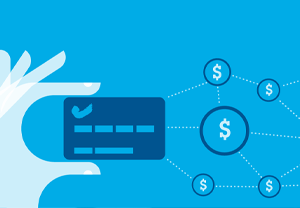You have probably heard of the Advance Child Tax Credit payments that are slated to start in mid-July, 2021. We have received several questions about these payments and hope to shed some light on these payments as well as the implications and benefits they could have on your family’s finances.
Most importantly, although part of the same legislation, these Advance Child Tax Credit payments are different from the 2021 Economic Impact Payments and may have tax implications. As implied by the name, this is an advance payment of the Child Tax Credit that many Americans typically receive as a credit on their annual Federal Tax Returns. See our “How to Prepare” section below so that you are not caught off-guard come tax time. These payments will allow families to receive up to $300 per qualifying child per month for the remaining six months of the year. If you receive these payments, the portion you receive will not be eligible to be used as a tax credit for your 2021 tax return.
What does this mean? Basically, if you usually receive a large tax refund as a result of the Child Tax Credit, your refund may be much less, or you might end up owing taxes when you file your return for the tax year 2021. These changes are for the 2021 tax year only.
Please Note: We do not have visibility into the status of Advance Child Tax Credit Payments. We cannot provide information about your eligibility for an Advance Child Tax Credit Payment, the status of your payment, the method in which your payment was sent, where your payment was sent, or the amount of your payment. We post deposits by 9:00 AM Central Time on regular business days. If your payment has not posted, there is no need to check multiple times throughout the day.
Additional Payment Information:
- For 2021, the Child Tax Credit is $3,600 for children under age 6 and $3,000 for children between ages 6 and 17
- If you are eligible to receive the full credit amount and have not opted out, you will receive up to $300 per month for each child under age 6 (up to $1,800 total) and up to $250 for each child age 6 to 17 (up to $1,500 total)
To be Eligible to Receive Advance Payments:
- A child must not turn 18 before January 1, 2022
- Is the daughter, son, stepchild, eligible foster child, brother, sister, stepbrother, half-brother, half-sister, or descendant of any of the previously listed individuals of the taxpayer
- Does not provide more than one-half of her/his own support for 2021
- Lives with the taxpayer for more than half of 2021
- Is properly claimed as a dependent of the taxpayer
Income Limits to Qualify:
There are income limits to qualify for the Child Tax Credit and it can be reduced to $2,000 per child if your modified adjusted gross income (MAGI) exceeds the following limits.
- 150,000 if married filing jointly (or if filing as a qualifying widow or widower)
- $112,500 if filing as the head of household
- $75,000 if you are a single filer (or married and filing a separate return)
- The child tax credit is reduced by $50 for each $1,000 your MAGI exceeds these income limits
Additionally, the child tax credit will be reduced below $2,000 per child if your MAGI exceeds the following
- $400,000 if married and filing a joint return
- $200,000 for other filing statuses
- Again, the child tax credit is reduced by $50 for each $1,000 your MAGI exceeds these income limits
The IRS and Department of the Treasury have established tools to help you with questions you may have about the Advance Child Tax Credit Payments. Links to some of these tools are below.
Sign-up for families who qualify for the Child Tax Credit but do not normally file a tax return
To determine your eligibility for the Advance Child Tax Credit
How to Prepare
As mentioned earlier, if you receive a large tax refund as a result of the Child Tax Credit or if the Child Tax Credit typically reduces the amount of tax you pay, you’ll want to either prepare for a much smaller refund or potentially paying taxes rather than receiving a refund when you file your 2021 taxes, if you choose to receive monthly advance payments for this tax credit.
Unless you absolutely need this money to live, we strongly encourage you to save all or a portion of your advance payments so that you are not caught with a large tax bill when you file your 2021 tax return. You will have money in savings, should you have to pay. Best of all, if you prepare by saving, these funds will earn interest each month! Even if you opt to receive monthly payments and do not think that you will need the money for taxes when you file, a great option would be to contribute a portion of the monthly payments to a savings account for your child/children.
Communication Federal can help establish these accounts to best fit your needs. We have several savings options ranging from regular savings accounts to our money market options that give you flexibility and maximize your earning potential. To see our rates and account options, click here.
As always, your local branch staff are always available to help you select the account that is best for you and assist in opening the account.



